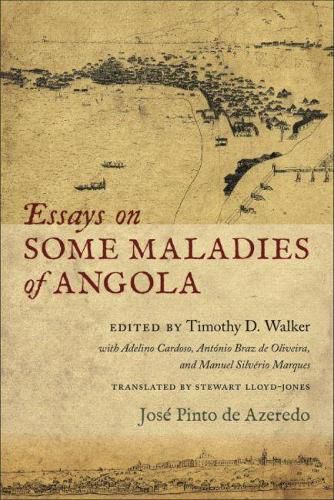Readings Newsletter
Become a Readings Member to make your shopping experience even easier.
Sign in or sign up for free!
You’re not far away from qualifying for FREE standard shipping within Australia
You’ve qualified for FREE standard shipping within Australia
The cart is loading…






Western science and pharmacology first learned about many African diseases, remedies, and medicinal practices through Jose Pinto de Azeredo’s highly original and influential text. A unique Enlightenment-era medical text written specifically about health issues in Angola, this is the first work by a Portuguese physician to describe accurately, through first-hand observation, medical practices and substances used in Angola during the peak period of the transatlantic slave trade. This first English-language edition of Essays on Some Maladies of Angola was translated by Stewart Lloyd-Jones (University of Stirling) and includes scholarly essays by Timothy Walker (University of Massachusetts Dartmouth), Adelino Cardoso (Universidade Nova de Lisboa), Antonio Braz de Oliveira (Biblioteca Nacional de Portugal) and Manuel Silverio Marques (Universidade de Lisboa).
$9.00 standard shipping within Australia
FREE standard shipping within Australia for orders over $100.00
Express & International shipping calculated at checkout
Western science and pharmacology first learned about many African diseases, remedies, and medicinal practices through Jose Pinto de Azeredo’s highly original and influential text. A unique Enlightenment-era medical text written specifically about health issues in Angola, this is the first work by a Portuguese physician to describe accurately, through first-hand observation, medical practices and substances used in Angola during the peak period of the transatlantic slave trade. This first English-language edition of Essays on Some Maladies of Angola was translated by Stewart Lloyd-Jones (University of Stirling) and includes scholarly essays by Timothy Walker (University of Massachusetts Dartmouth), Adelino Cardoso (Universidade Nova de Lisboa), Antonio Braz de Oliveira (Biblioteca Nacional de Portugal) and Manuel Silverio Marques (Universidade de Lisboa).